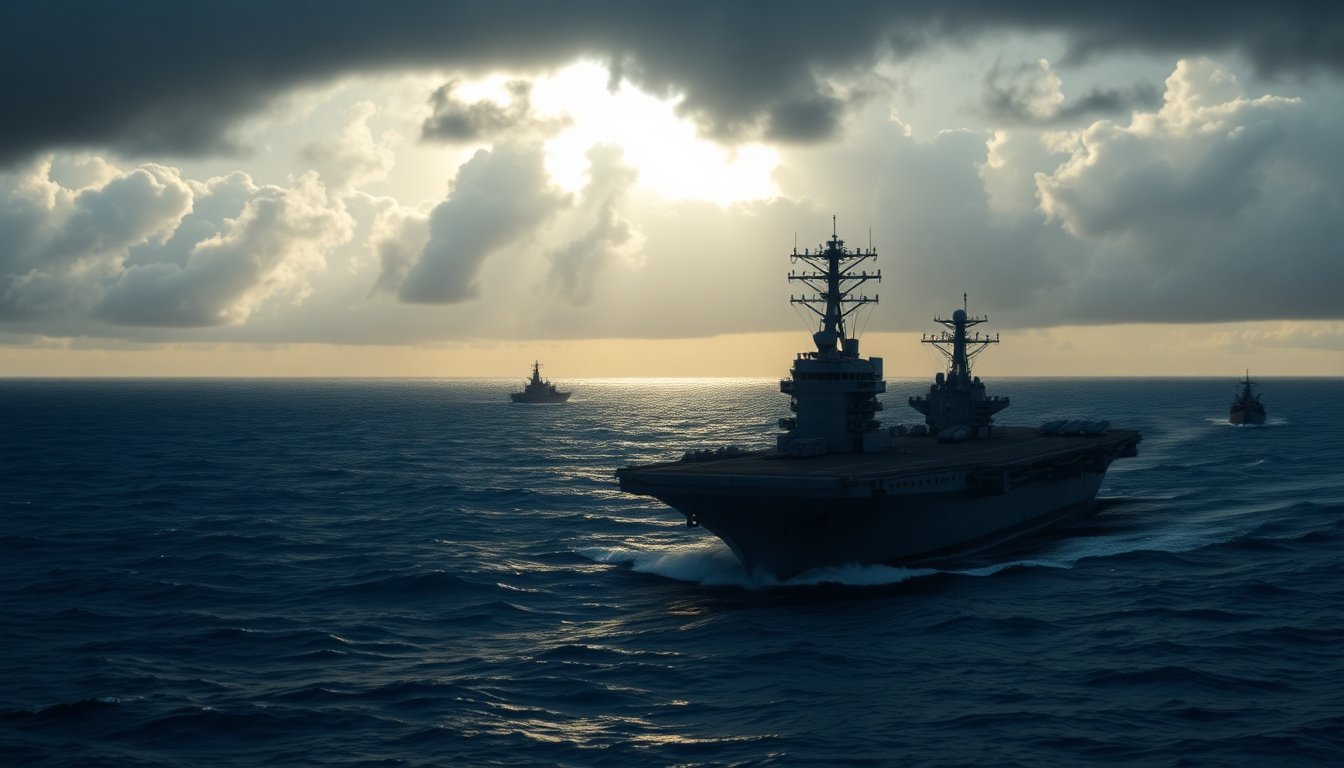Table of Contents
In a landscape fraught with geopolitical tensions, President Donald Trump has signaled that Venezuelan President Nicolás Maduro is open to discussion. This revelation comes as the Trump administration considers military options related to Venezuela amidst rising concerns over drug trafficking and regional instability. With the USS Gerald R. Ford being dispatched to the Caribbean, Maduro has responded by accusing the U.S. of attempting to instigate a prolonged conflict.
During a recent media briefing, Trump made it clear that although military actions are under consideration, no definitive plans for ground strikes against Venezuela have been set. Instead, he emphasized that dialogues could potentially unfold, and there is an interest from Maduro’s side to engage in talks. This nuanced approach reflects the complex dynamics at play between the two nations.
Military strategy and political dialogue
The U.S. administration has designated the Venezuelan-linked Cartel de los Soles as a terrorist organization, a move that escalates the pressure on Maduro’s regime. This classification allows the U.S. government to implement stricter measures against individuals and entities associated with the cartel, which is alleged to be involved in drug trafficking and other illicit activities. As Secretary of State Marco Rubio announced the impending designation, he underscored that this step is a significant part of the U.S. strategy to combat drug-related crimes linked to Venezuela.
The role of Congress
Trump’s administration maintains a consistent dialogue with Congress regarding the strategies to disrupt the flow of narcotics originating from Venezuela. He has stated that while keeping lawmakers informed is important, he does not seek their approval for military actions. This stance has drawn both support and criticism from various political spheres, as the implications of military intervention carry significant consequences for U.S.-Latin American relations.
International implications and support
As the U.S. steps up its military posture in the Caribbean, Trump asserts that multiple countries are rallying behind the U.S. efforts to apply pressure on Maduro. He alleges that the Venezuelan government is exacerbating the drug crisis by allowing violent offenders to enter the United States, further complicating the issue of illegal immigration. The President has pointed fingers at the current administration for what he describes as a failure to manage the border crisis, which he attributes to an influx of individuals with criminal backgrounds.
Ongoing operations against drug trafficking
Recent actions by the U.S. Southern Command, including precision strikes against vessels linked to drug trafficking, demonstrate the seriousness of the U.S. response to narcotics-related threats. These operations are part of a broader strategy aimed at dismantling drug networks that pose risks to American communities. Trump has reiterated the importance of maintaining operational secrecy to protect military personnel and intelligence operatives involved in these initiatives.
The balancing act
The evolving situation between the U.S. and Venezuela reflects a delicate balancing act of military readiness and diplomatic engagement. While Trump has indicated that military options remain viable, the possible dialogue with Maduro suggests a willingness to explore peaceful resolutions amidst a backdrop of escalating tensions. As international scrutiny intensifies, the actions taken in the coming weeks will be pivotal in shaping the future of U.S.-Venezuela relations.


